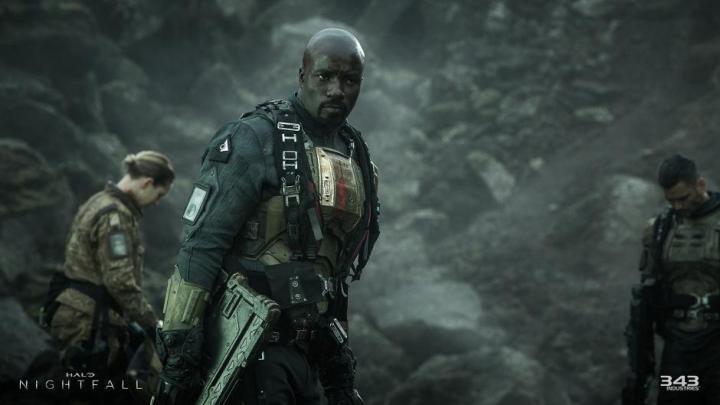
Agent Locke works for the Office of Naval Intelligence (ONI). When he and his team are sent to a distant colony to investigate terrorist activity, they come across an “ancient, hellish artifact,” setting the plot of Nightfall in motion.
The live action series, produced by Ridley Scott, is the first Colter has done based on a video game, and he admits to coming onboard with some degree of trepidation. Unsure of who the audience for this series would be, Colter found that “not only does Halo: Nightfall cater to the hardcore Halo fans, but it’s also designed for newcomers” with a script that is “incredibly gripping” in the way it “introduces an intriguing and mysterious world.”
Microsoft plans to make the series as widely available as possible, by putting it on Xbox Live, smartphones running Windows Phone, and Microsoft Surface tablets. The series will also be bundled with the release of the Halo: The Master Chief Collection, which is available on November 11 for Xbox One.
While the Variety story focuses on Colter and his role in Halo: Nightfall, it also provides detail on a key character for Halo 5: Guardians. That’s great news for fans that are dying to learn more about 343 Industries next new entry in the series.


